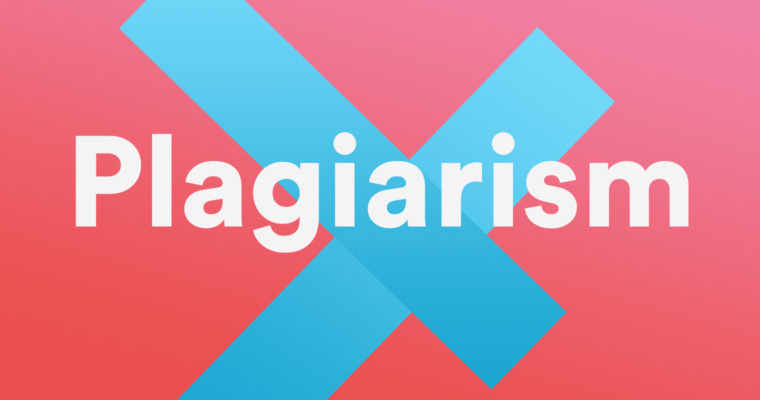
Plagiarism

What is plagiarism? According to the Concise Oxford Companion to the English Language, the word "plagiarism" is from the Latin word plagiarius, which means "literary thief," and is defined as "The appropriation of someone's artistic, musical, or literary work for personal ends." How does this concept apply to CWU students? Unfortunately, there have been incidences of plagiarism here on CWU, but most often because students do not know they are plagiarizing when they do it.
Plagiarism and Citations Playlist - from Kevin deLeplante, Ph.D.
Here are the ways most students commit plagiarism:

Checking For Plagiarism
Central Washington University does check student work for plagiarism! Most, if not all, instructors at CWU will check student papers for originality by running Canvas assignments through a software called Turnitin, a software program that checks student work against internet websites, databases, blogs, etc. by finding "cut & paste" sections of the paper.
See Turnitin to go to their website, or Answers To Questions Students Ask (Links to an external site.), to find out more about Turnitin.
Plagiarism Checker for Students
Try Plagiarism.org (Links to an external site.) to get some very good help to avoid unintended plagiarism with their free checker and some helpful tutorials.
Checklist for Avoiding Plagiarism
Are you using:
You must acknowledge someone else's material.
Quotations:
Paraphrases and Summaries:
The Web:
Source Citations:
Checklist content borrowed from: Fowler, Ramsey H. and Jane I. Aaron. The Little, Brown Handbook. New York:
Pearson Education, Inc., 2004. http://wps.ablongman.com/long_fowler_lbh_9/
According to Central's Student Code of Conduct, a student shall be subject to disciplinary action or sanction upon violation of the following conduct proscriptions:
B. Academic dishonesty in all its forms including, but not limited to:
1. Cheating on tests
2. Copying from another student’s test paper
3. Using materials during a test not authorized by the person giving the test
4. Collaboration with any other person during a test without authority
5. Knowingly obtaining, using, buying, selling, transporting, or soliciting in whole or in part the contents of an unadministered test or information about an unadministered test
6. Bribing any other person to obtain an unadministered test or information about an unadministered test
7. Substitution for another student or permitting any other person to substitute for oneself to take a test
8. Plagiarism, which means the appropriation of any other person’s work and the unacknowledged incorporation of that work in one’s own work offered for credit
Consequences of academic dishonesty can result in a written warning, a failing grade on an assignment, or escalate to expulsion from Central and forfeiture of awards or scholarships.
 Ask CWU Libraries
Ask CWU Libraries